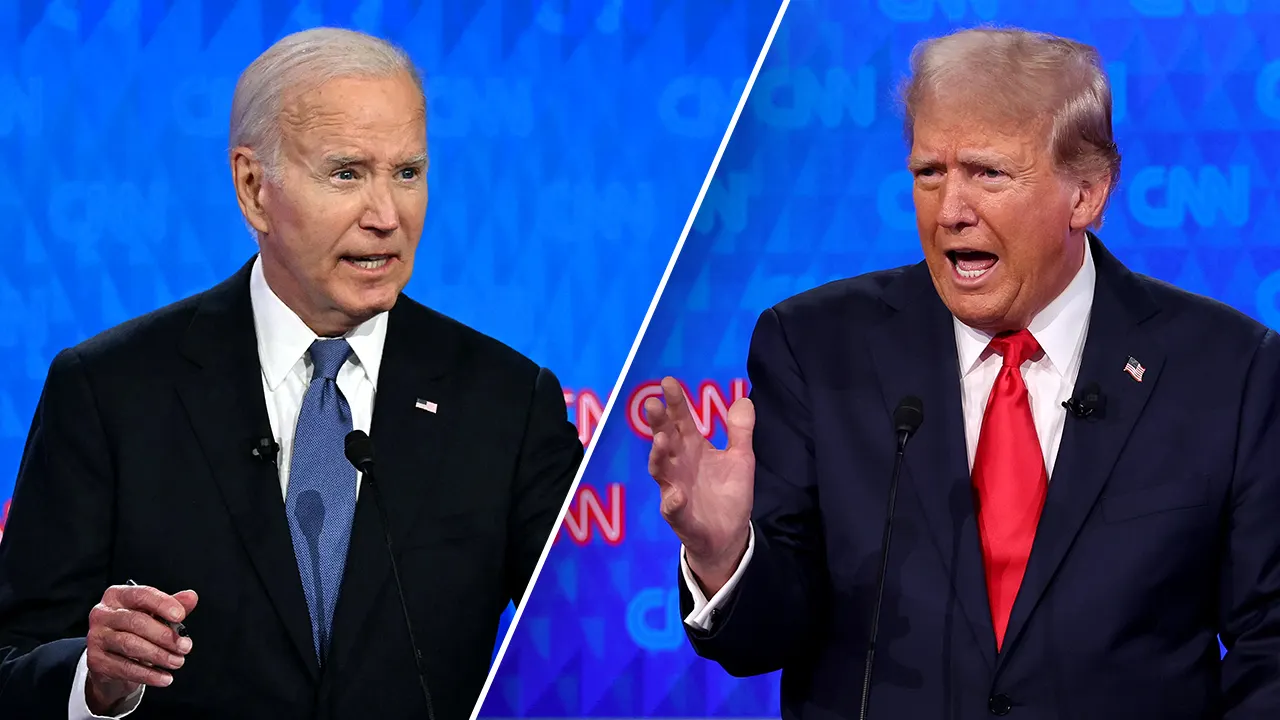The Supreme Court will likely issue the final rulings of its current term this week, wrapping up some of the highest profile battles from the past nine months.
The cases still in need of resolution include former President Donald Trump’s request for presidential immunity, a challenge to the Chevron doctrine, a clash over emergency room care for pregnant women and a battle over whether Jan. 6 protesters were charged with the right crime.
Here’s an overview of some of the key questions the court is expected to answer this week.
Remaining Supreme Court cases
Trump v. United States
-
Key questions: What’s the scope of presidential immunity? Can Trump be prosecuted for allegedly working to overturn the 2020 presidential election while in office?
-
Lower court ruling: The lower courts rejected Trump’s claim that presidents enjoy broad immunity from criminal prosecution.
-
Why it matters: In the short term, a ruling for Trump would derail the election interference case against him and potentially make it easier for him to be reelected in November. In the long term, the ruling could change the nature of the presidency, making future leaders feel either more invincible or more vulnerable.
Relentless v. Department of Commerce
-
Consolidated with: Loper Bright Enterprises v. Raimondo
-
Key question: Should federal agencies have broad authority to interpret and enforce vague policies passed by Congress?
-
Lower court ruling: The federal government won at the circuit court level in each of the now-consolidated cases. The judges upheld what’s called the Chevron doctrine, deferring to a federal agency’s interpretation of a law governing commercial fishing.
-
Why it matters: Chevron deference has shaped the work of the federal government since the 1980s, influencing the rule-making process for everything from the environment to religious freedom. If the court overturns it, the pressure would be on Congress to pass clearer policies.
Moyle v. United States
-
Consolidated with: Idaho v. United States
-
Key question: What wins out when state-level abortion bans conflict with a federal law regarding emergency medical treatment for pregnant women?
-
Lower court ruling: The Biden administration, which is fighting to block Idaho’s near-total abortion ban, won at the district court level and again when the full 9th U.S. Circuit Court of Appeals heard the case. Those rulings put Idaho’s abortion law on hold, but the Supreme Court allowed it to go into effect when it agreed to hear the case.
-
Why it matters: A ruling for Idaho would build on the Supreme Court’s 2022 decision returning control over abortion rights to the states, further complicating the Biden administration’s effort to protect abortion access.
City of Grants Pass v. Johnson
-
Key question: Do bans on public camping turn homelessness into a crime?
-
Lower court ruling: The lower courts ruled against the city of Grants Pass, Oregon, saying that its anti-camping law amounts to cruel and unusual punishment because there aren’t enough beds at shelters in the area to serve the homeless population.
-
Why it matters: The court’s ruling could affect how communities nationwide, including in Utah, respond to the homelessness crisis.
Fischer v. United States
-
Key question: Were Jan. 6 protesters prosecuted for the wrong crime?
-
Lower court ruling: More than a dozen lower court judges have ruled that it was appropriate to charge the protesters with violating a federal law prohibiting obstructing or impeding official proceedings. But in Fischer v. United States, a district court judge ruled that the law shouldn’t apply in the context of Jan. 6 since it was designed to address evidence tampering. The U.S. Court of Appeals for the District of Columbia Circuit then reinstated the charge, per SCOTUSblog.
-
Why it matters: If the Supreme Court rules that the federal statute in question should not apply to Jan. 6 protesters, prosecutors across the country would likely need to revisit more than 100 cases and change their approach to hundreds of others, including one against Trump.
Moody v. Netchoice
-
Consolidated with: Netchoice v. Paxton
-
Key question: Can states regulate social media sites’ content moderation policies?
-
Lower court rulings: The 5th U.S. Circuit Court of Appeals upheld a law in Texas that aims to prevent social media sites like Facebook and X from basing content moderation decisions on the views a user is promoting. But the 11th U.S. Circuit Court of Appeals blocked most of a similar law in Florida from taking effect.
-
Why it matters: The Supreme Court’s ruling will clarify the scope of social media sites’ free speech rights and move conservative politicians’ long-term battle against these sites into a new phase.
Ohio v. EPA
-
Consolidated with: Kinder Morgan v. EPA; American Forest & Paper v. EPA; U.S. Steel Corp. v. EPA
-
Key question: Can the Environmental Protection Agency implement its plan to reduce ozone pollution?
-
Lower court rulings: Lower courts have not yet ruled on whether the EPA’s plan can take effect permanently. In these four cases, state officials and companies affected by the proposed air quality rules are challenging a D.C. Circuit ruling saying the plan can take effect at least temporarily.
-
Why it matters: The Supreme Court’s ruling will likely hint at how the justices feel about the EPA’s actions, giving court watchers a sense of how much authority the EPA will have in the future to combat air pollution.
When is the Supreme Court’s next decision day?
The Supreme Court’s next decision day is Wednesday, June 26.
Opinions will be released on the court’s website beginning at 8 a.m. MDT.
The Supreme Court will likely also release opinions on Thursday and Friday.
The justices typically wrap up their term by July 1.
Major Supreme Court decisions handed down so far
The Supreme Court has already issued rulings in most of the cases from this term.
Read these stories to catch up on the most notable decisions:













